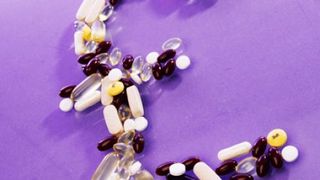Sports supplement VAT
Maximuscle’s GM Mark Langley talks about the industry’s reaction to the VAT that's being applied to supplements

Over the past ten years, the sports supplement industry has seen a shift in its customer base from hardcore bodybuilders to elite athletes and health-conscious members of the public who exercise a few times a week. What used to be a male-dominated market is now roughly 75% male and 25% female. As a result of this increase in popularity, the taste, quality and safety of products have improved and they are now stocked in mainstream shops such as Tesco and Boots.
The British economy has benefited from the growth of the sports supplement industry. It was previously a US-led industry but now the leading players in the UK market (Maximuscle, PhD, MyProtein) are all British, which makes the government’s proposed addition of VAT to our products even more bewildering.
Earlier this year, the government identified certain products not currently subject to VAT that they felt should be. The proposal to charge VAT on hot Cornish pasties gained a lot of media attention, but sports supplements were another item named.
The justification given for applying VAT to sports supplements is that sports drinks such as Powerade and Lucozade are subject to the tax, therefore it’s anomalous for sports supplements not to be. However, carbohydrate-based energy drinks and protein-based supplements are completely different and to treat them the same is ludicrous. In reality, it boils down to the sport supplement industry being an easy yet short-sighted way to increase revenue.
The sports supplement industry is fighting certain segments of the legislation, arguing that it’s creating an uneven playing field in which some milk-based products will be subject to VAT while others won’t. After all, milk isn’t subject to VAT and most of our products are simply derivatives of milk. We’re actually still awaiting clarification on some of our products, which is unbelievable when this comes into effect on 1st October.
We have submitted a challenge to HMRC and have joined the newly formed UK Specialist Sports Nutrition Alliance. Together we will continue to lobby, partly over the technicalities of bunching all sports-related food products together and partly from a health perspective.
The proposed pasty tax was dropped due to negative public reaction and we still hold out hope that we can persuade the government to do the same for sports supplements.
People who go to the gym regularly and use protein supplements as part of their training will, in most cases, find the money and continue to purchase them – just like when the price of petrol or beer goes up. But the addition of VAT to sports supplements will create a financial barrier for people thinking of trying products for the first time.
The government claims it wants to create a sporting legacy in the wake of the Olympics but its actions say otherwise. It’s ironic that the decision to tax health-conscious people comes into effect the day after the Ryder Cup finishes, marking a depressing end to the spectacular summer of sport our country has enjoyed.
Mark Langley is the general manager of Maximuscle.
Get the Coach Newsletter
Sign up for workout ideas, training advice, reviews of the latest gear and more.
